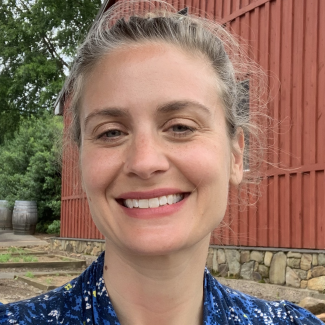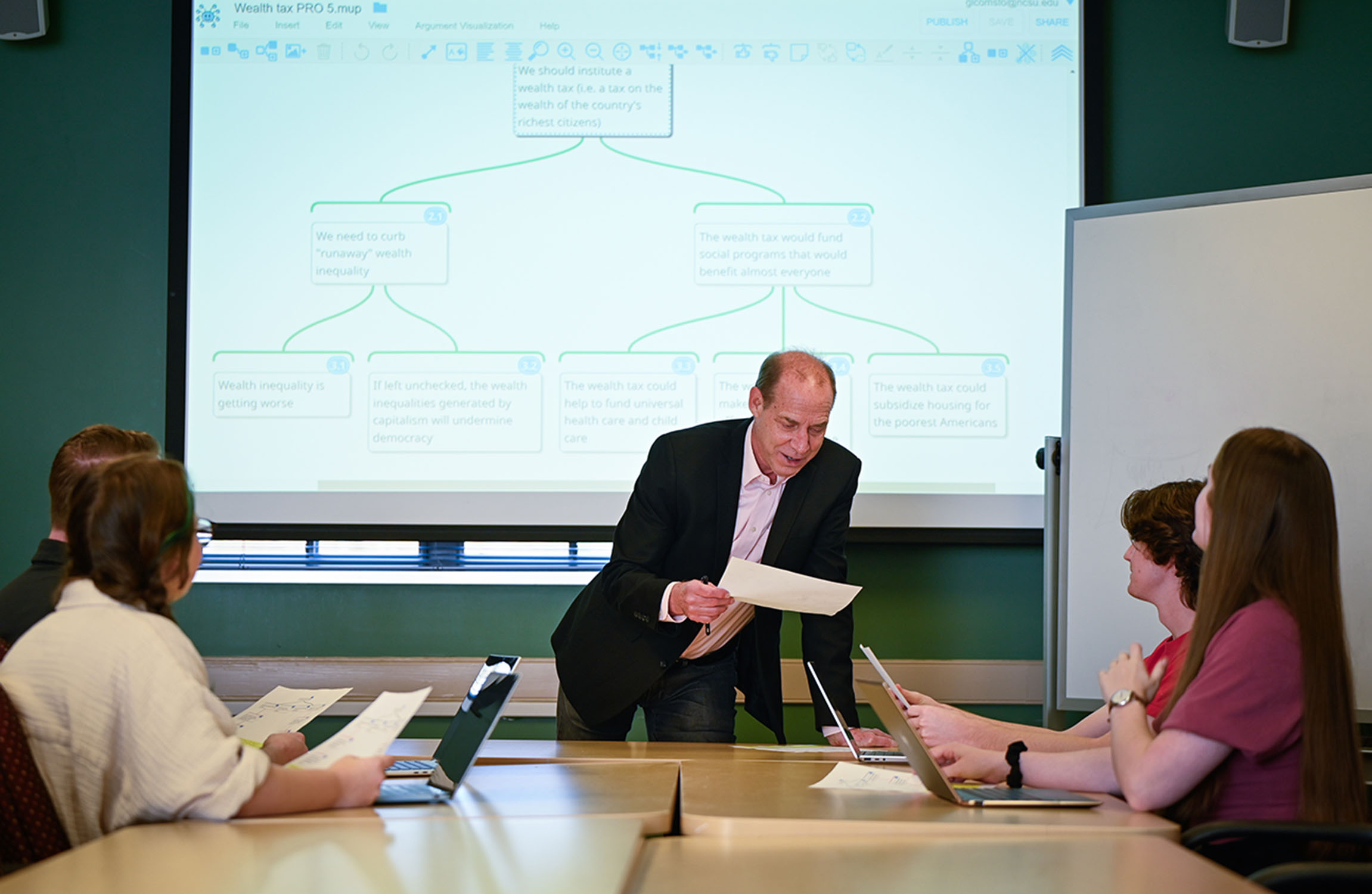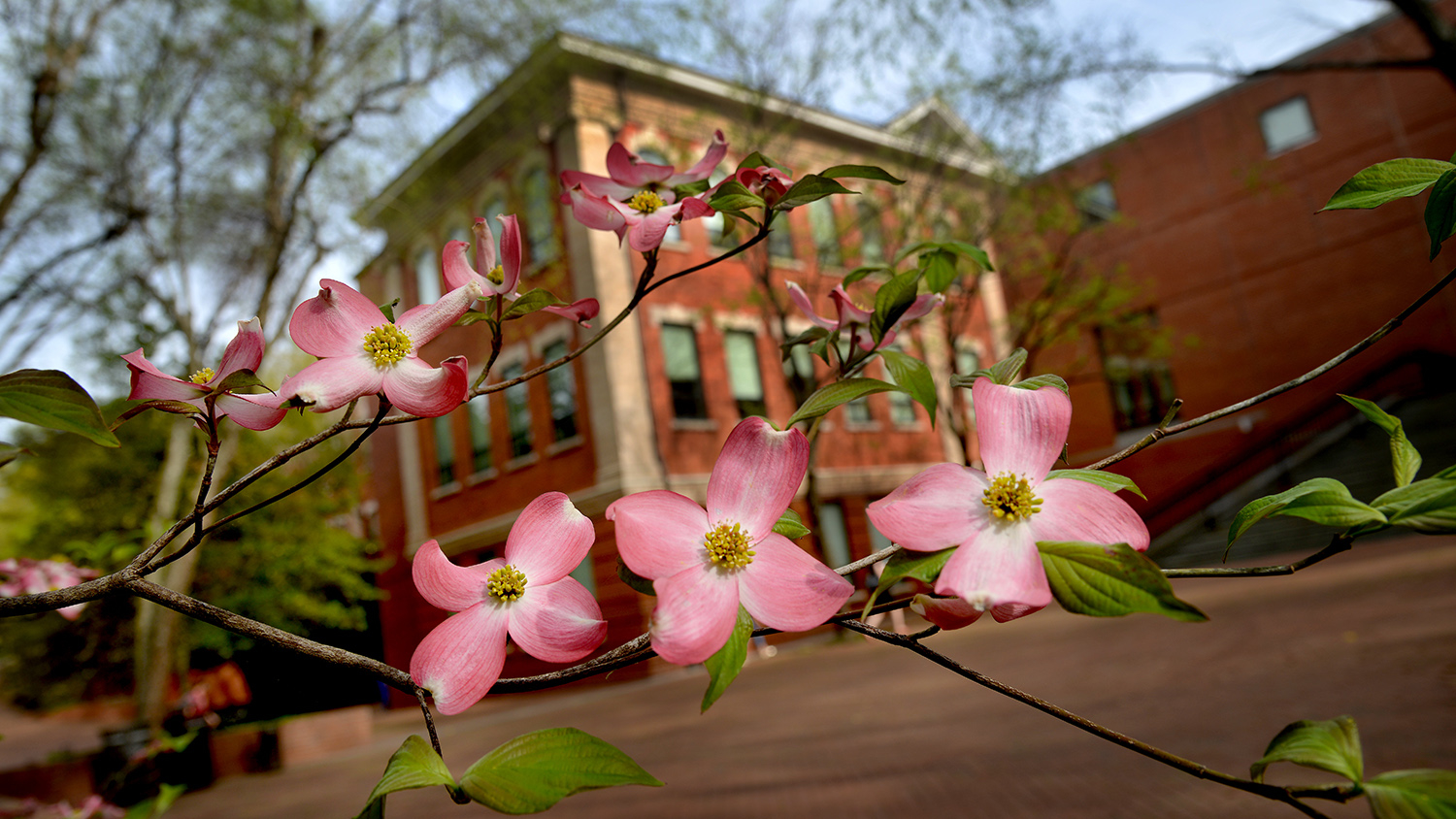Two NC State history professors earned coveted National Endowment for the Humanities (NEH) fellowships to research and write books that advance their scholarship.
Kristen Alff, assistant professor of history, and David Ambaras, professor of history, each received $60,000 to pursue their projects during the 2023-24 academic year.
The fellowships are part of $28 million in NEH funding awarded to 204 humanities projects nationwide. The fellowship program supports advanced humanities research that contributes to scholarly knowledge or the public’s understanding of the humanities.
Alff will work on Levantine Joint-stock Companies and Global Capitalism, 1830–1930. The book explores the commercial activities and family joint-stock companies in the Levant from 1830 to 1930.
Ambaras will pursue a digital book, Maritime Connections and Japanese World-Making in the 1950s –1960s. It examines the intertwined histories of ports, shipping, dockworkers and seafarers in post-World War II Japan and the Asia-Pacific region.
The NEH is an independent federal agency and among the largest funders of humanities programs in the United States.
We caught up with our fellowship winners to learn more about their respective projects.
Kristen Alff
Kristen Alff specializes in the history of the Middle East and North Africa and the global political economy. Her fellowship project traces the practices of competition and cooperation between joint-stock companies across the Mediterranean, which gave global capitalism its shape.

What is the goal of your project?
My project challenges the still-widespread assumption that capitalism is synonymous with rapid industrialization initiated by European entrepreneurs and then exported around the world. What made the Levantine companies highly competitive on the global market was that they actively eschewed many Western European norms. Indeed, members of the Beirut-based companies implemented their unique business practices, such as specific forms of sharecropping in the labor-scare countryside of Palestine and Anatolia. Levantine companies’ practices and social relations with Levantine peasants allowed them to dominate global manufacturing and trade, buying up majority shares in the companies that historians cite as exemplars of European capitalism’s triumph. Tracing competition and exchange from the Levant to other parts of the globe, like Britain, Bombay and Brazil, where the Levantine companies were commercially active, I show how these companies contributed to the operation of global capitalism throughout the late 19th and early 20th centuries.
How does your project build on the college’s new strategic plan?
My book builds on at least two of the three priorities of the college’s new strategic plan: interdisciplinarity and diversity and inclusion.
First, my book project is based on interdisciplinary methods. In addition to employing traditional tools of historical research, such as document analysis and oral history, I also take risks theoretically. This book can only be written by combining economistic theories of capitalism with more cultural understandings of how humans perceive their economic actions in their political, social and economic environments. For that reason, I read novels, news articles, and family letters from an economic and cultural perspective to innovate a new approach to these materials.
Second, my interdisciplinary methodology promotes the inclusion of diverse voices in the history of capitalism by offering a critique of Eurocentric theoretical norms. I argue that Levantine joint-stock companies do not fit the theoretical parameters of standard definitions of capitalism, defined by theorists through observations in Western Europe. Whereas scholars have taken the aberration to mean that the companies were less sophisticated and lacking in their business acumen, I contend that their unique methods show that the Levantine companies knew about models for capital accumulation and created methods to maximize capital accumulation within the political and social framework of the late Ottoman Levant. Moreover, I show the overall contribution of these forgotten companies. I argue that by not mimicking available European models, the Levantine companies became some of the wealthiest and most competitive players in the global capitalist market in the late 19th century. These companies’ unique business practices made them so influential on a global scale that they contributed to the shape of capitalism in the 19th century. Their institutional legacies continue to inform capitalist practices today.
David Ambaras
David Ambaras explores the social history of Japan and its world, particularly through a focus on mobility, marginality and transgression. For his fellowship book project, Ambaras examines a critical transitional moment in the history of postwar Japan, global capitalism, maritime transport, and the geopolitics of the Asia-Pacific shaped by the Cold War, decolonization, and the legacies of Japanese imperialism.

What is the goal of your project?
In this project, I examine a time when the high-growth economy was kicking into gear, and Japan’s ports were points of connection where shippers, administrators and laborers all confronted changing economic and geopolitical relationships that were reshaping both their work and the geography of global capitalism. Anticipating a revolution in transport technologies symbolized by container shipping and massive oil tankers, government and private agencies cooperated in developing plans for large-scale port expansion. Various national and international organizations emerged to disseminate knowledge and standardize practices relating to shipping, seafaring and cargo handling. Labor unions struggled to bring Japan and other Asian countries into accordance with global labor standards and rights. And on the docks and at sea, labor activists and ordinary workers sought to redefine Japan’s position in a region shaped by the Cold War and decolonization across the emerging developing nations.
I have several goals for this project. First, I want to shed new light on a historical moment that has received limited attention compared to the imperial and wartime era that preceded it or the decades of neoliberal globalization that followed. In doing so, I want readers to develop new understandings of (1) the ways in which the infrastructures of late-capitalist globalization, including ideas of the global, took shape; (2) the different ways in which maritime logistics systems reconstituted labor and society in Japan, across the Asia-Pacific, and beyond; and (3) the ways in which maritime workers and their allies contested dominant political and economic structures and offered competing imaginations of global solidarity and social and economic justice.
How does your project build on the college’s strategic plan?
This project responds to the strategic plan’s call to “shed light on human societies of the past, present, and future” (including by reflecting on how people in the past imagined their futures and how they sought to realize them). By comparing the impacts of maritime world-making on different social groups and places — and by investigating efforts to implement global standards and global human rights — my work also helps us draw on the past to “address complex problems to bring about a healthier, more just and prosperous society.” And by examining how recent historical actors “design[ed] and buil[t] for collaboration to help solve critical challenges,” I offer resources for those seeking to do so in the present.
- Categories:



